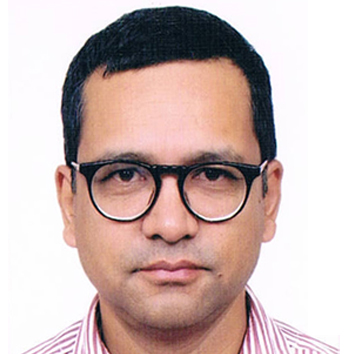Columns
Disciplining research misconduct
It is essential to provide a nurturing research environment to those trying to be honest academics.
Pratyoush Onta
Over the past few weeks, I have been thinking about two related aspects of higher education and research. First, the general issue of research misconduct, of which plagiarism is a particular type. Second, the general issue of nurturing research, of which the written article is a particular type of output. I will only discuss the first issue today.
Fraud to neglect
Research misconduct can come in many avatars. In the basic sciences, this can entail outright fraud, such as manufacturing trial/lab data and doing an analysis based on such fabricated data. While there are many monetary and professional incentives for scientists to engage in such full-scale fraud, the sanctions for those who are adjudged (not simply accused) of engaging in such fraud tend to be pretty severe. These range from institutional bans from conducting new research to revocation of research grants without which such trials and lab experiments can hardly be conducted. Professional rejection from peers in areas where peer judgment is the highest form of scientific evaluation also counts as a severe punishment for such individuals.
But a distinction should also be made between intentional outright fraud and the application of less than the highest standards of rigour in basic scientific research. We saw such an example at play in July 2023, when the then-president of Stanford University, Marc Tessier-Lavigne, announced he would resign from his position at the end of the summer. As The New York Times then reported, this announcement came after “an independent review of his research found significant flaws in studies he supervised going back decades.”
The review panel concluded that Tessier-Lavign had not manufactured false data in an important 2009 study about Alzheimer’s. However, the study “had ‘multiple problems’ and ‘fell below customary standards of scientific rigour and process’.” In particular, Tessier-Lavign had failed to properly supervise the research conduct of some of his lab co-researchers who were involved in that 2009 study. He had to pay a price for this neglect: He resigned as president but remains a faculty member at Stanford.
In the humanities and the social sciences, manufacturing fraudulent data is a relatively rare problem because of the particular epistemological nature of these disciplines. That is not to say that no social scientists have faked field research or reported doing research activities that were never conducted. Such instances have occurred. However, in the scale of things, plagiarism is a much bigger problem in these disciplines.
Plagiarism
Plagiarism has recently been in the news both in the United States and in Nepal. Early last month, the then-president of Harvard University, Claudine Gay, resigned after reviews by the university found multiple instances of what was euphemistically called “duplicative language.” The review concluded that Gay had failed to quote words from other scholars in the proper style expected in such instances. Initially, Gay requested corrections in two of her published works, but as more instances of such “duplicative language” were found by her critics, she was forced to resign. In an op-ed published in The New York Times after her resignation, she defended her research but acknowledged that she had published work where “some material duplicated other scholars’ language, without proper attribution.”
Harvard’s conclusion that Gay’s citational shortcomings were not “intentional or reckless” must have played a role in letting her continue as a faculty member in the university. However, it remains to be seen how the university will revise its policy on plagiarism if its students engage in such or similar misconduct.
In our own country, plagiarism has been in the news in the past two weeks following the revelation that at least two applicants to the Vice-Chancellor’s position at Tribhuvan University have been accused of plagiarism. One of them has engaged in outright plagiarism, and another—it seems to me—has engaged in self text-recycling, thus bringing the oxymoronic charge of self-plagiarism. Since you can’t steal from yourself, I don’t believe that there is anything called self-plagiarism. I have written about it in a previous column in this newspaper (“There is no self-plagiarism”, November 18, 2017). However, plagiarism is a serious issue, and we must discourage it in our higher education and research landscape.
What can be done?
First, I don’t think higher education institutions need a sophisticated definition of plagiarism. For years, I have been saying that such a definition needs just three sentences: When you borrow someone's ideas, you acknowledge and cite. When you borrow someone's words (even if it is
from a tertiary source such as Wikipedia), you quote and cite with full page information or link to the online source. If you fail to do either, you have engaged in plagiarism. This definition should be discussed with every undergraduate and graduate student on the first day of classes at our colleges and universities. This simple truth should be delivered in straightforward language and not mixed up with confusing citation style guidelines of this or that organisation (namely, APA, MLA, Chicago style, etc.).
Second, research students enrolled at the MA, MPhil and PhD levels at Nepal’s universities should be told about the long-term benefits of honest academia. The same should be done in research institutes when new colleagues join as staff researchers.
Third, as I discussed in a 2015 piece in Setopati online (the link no longer works), teachers, thesis supervisors and external examiners can stop plagiarism by refusing to pass people who cheat. When they point out plagiarism with evidence, it will be hard for university administrators to ignore them. I know that this can work. About 10years ago, as an external examiner, I pointed out—with evidence—that a PhD student at Tribhuvan University had plagiarised my work and that of others. The dean’s office, which had requested me to examine the thesis, forced the student to remove the plagiarised parts in the course of its revision.
Fourth, as I also pointed out in 2015, sanctions have to be tougher. Students who plagiarise should be told that this kind of academic dishonesty comes with a price, and their degrees will be suspended or revoked even if their acts of plagiarism are discovered in the future. The same goes for faculty members who plagiarise. For faculty members, such sanctions must be a strong part of the internal faculty-led governance structure that runs departments or specific faculty divisions.
Finally, we can stop plagiarism by providing those trying to be honest academics with a nurturing research environment. But that is a topic for some other occasion.




 9.12°C Kathmandu
9.12°C Kathmandu















